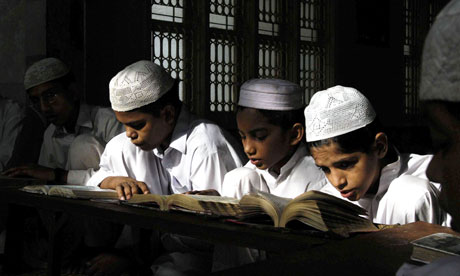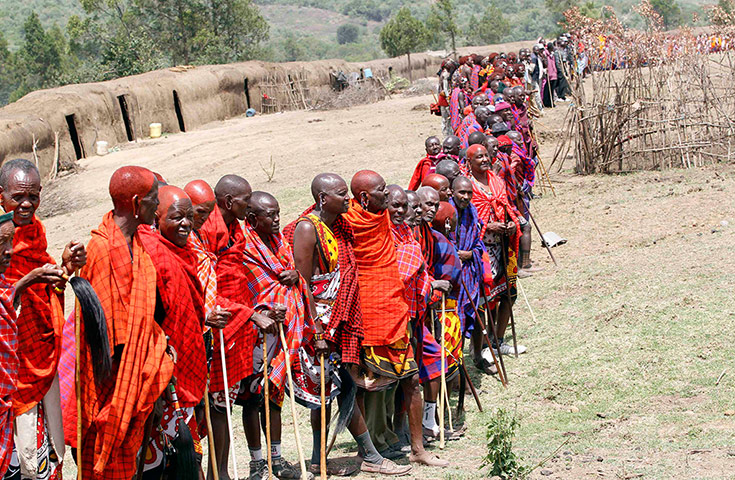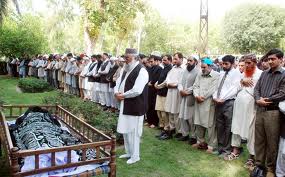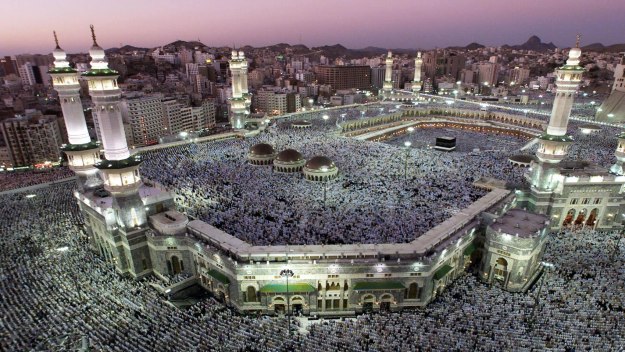1.How
has diffusion, assimilation, and multiculturalism affected your identity?
Well diffusion, assimilation, and
multiculturalism has affected my identity both negatively and positively.
Diffusion has a affected my roots because in Somali history when Italy took
over most Somalis started speaking Italian as their second language. So my grandparents
and parents both speak Italian so I have to learn Italian as well, so I don’t
get lost with my cultural roots, and don’t forget who I am and where I come
from.



 Assimilation is both a good and bad thing in my opinion. It’s good
because it brings other people with different cultures together and emerge into
one. But it’s also a bad thing because it could affect other peoples cultural/religious practices like for a me it mandatory to pray 5 times but the school schedule interferes with that. It affects my identity I want to fit in with everyone but at the same time I live up to my religious standards.
Assimilation is both a good and bad thing in my opinion. It’s good
because it brings other people with different cultures together and emerge into
one. But it’s also a bad thing because it could affect other peoples cultural/religious practices like for a me it mandatory to pray 5 times but the school schedule interferes with that. It affects my identity I want to fit in with everyone but at the same time I live up to my religious standards.
 In
my culture this passage really differs because you are not suppose to make a
grand entrance or carry swords, you are suppose to keep modest, and you cannot
carry weapons of any kinds because you want to come in this new commitment as a
person who love everyone and everything. Also in Somali culture instead of the
ceremony being done in front of everyone the ceremony is strictly with the
brides and grooms parents. Also the girl
is suppose to stay covered to show that she is committed with her husband and
will only be modest. There are some similarities, like prayers are said by your
guests for blessing, and the reason for the prayers, are for marriage,
commitment, and eternal love.
In
my culture this passage really differs because you are not suppose to make a
grand entrance or carry swords, you are suppose to keep modest, and you cannot
carry weapons of any kinds because you want to come in this new commitment as a
person who love everyone and everything. Also in Somali culture instead of the
ceremony being done in front of everyone the ceremony is strictly with the
brides and grooms parents. Also the girl
is suppose to stay covered to show that she is committed with her husband and
will only be modest. There are some similarities, like prayers are said by your
guests for blessing, and the reason for the prayers, are for marriage,
commitment, and eternal love.



Multiculturism
has affected in an amazing way. Before coming to Toronto I used to live in
Quebec, and Quebec is an very narrow minded and closed when it comes to
different cultures emerging into one. I would
many kids from different cultures and religions.
Most schools were Catholic schools so they
looked down upon other cultural
aspects.
But
when moving to Toronto I felt a great sense of unity. I saw kids from a
Pakistan, or Chinese, and African backgrounds being good friends you don’t see
that in Quebec, it’s usually people hanging with their own kind. But after living the multi life for 7 years I understood
what it means to know
where you from come,
showed me that where you come from makes you unique, and
it opened my mind to different people, and what they believe.
But
when moving to Toronto I felt a great sense of unity. I saw kids from a
Pakistan, or Chinese, and African backgrounds being good friends you don’t see
that in Quebec, it’s usually people hanging with their own kind. But living
after living the multi life for 7 years I understood what it means to know
where you from come, showed me that where you come from makes you unique, and
it opened my mind to different people, and what they believe.
 Assimilation is both a good and bad thing in my opinion. It’s good
because it brings other people with different cultures together and emerge into
one. But it’s also a bad thing because it could affect other peoples cultural/religious practices like for a me it mandatory to pray 5 times but the school schedule interferes with that. It affects my identity I want to fit in with everyone but at the same time I live up to my religious standards.
Assimilation is both a good and bad thing in my opinion. It’s good
because it brings other people with different cultures together and emerge into
one. But it’s also a bad thing because it could affect other peoples cultural/religious practices like for a me it mandatory to pray 5 times but the school schedule interferes with that. It affects my identity I want to fit in with everyone but at the same time I live up to my religious standards.
2.
Reflect on
3 rites of passages that you will to go through and see how they were similar/
different to cultures.
Passage 1 Sikh Wedding: The groom receives a sword from their
uncle/father and the nephews carry it in. The groom usually makes a grand
entrance like riding a horse for example. The Arday prayers are recited by the guests.
While the ceremony is being performed the woman’s face is covered with a sash
or veil. During the ceremony the priest or gnick sits and the sash is unveiled.
The couple sits down and listens to sacred prayers. This happens after the
couples’s soul exchange. The ceremony is done with family, and friends. The
meaning of this is marriage, commitment, and eternal love.
 In
my culture this passage really differs because you are not suppose to make a
grand entrance or carry swords, you are suppose to keep modest, and you cannot
carry weapons of any kinds because you want to come in this new commitment as a
person who love everyone and everything. Also in Somali culture instead of the
ceremony being done in front of everyone the ceremony is strictly with the
brides and grooms parents. Also the girl
is suppose to stay covered to show that she is committed with her husband and
will only be modest. There are some similarities, like prayers are said by your
guests for blessing, and the reason for the prayers, are for marriage,
commitment, and eternal love.
In
my culture this passage really differs because you are not suppose to make a
grand entrance or carry swords, you are suppose to keep modest, and you cannot
carry weapons of any kinds because you want to come in this new commitment as a
person who love everyone and everything. Also in Somali culture instead of the
ceremony being done in front of everyone the ceremony is strictly with the
brides and grooms parents. Also the girl
is suppose to stay covered to show that she is committed with her husband and
will only be modest. There are some similarities, like prayers are said by your
guests for blessing, and the reason for the prayers, are for marriage,
commitment, and eternal love.
Passage 2 Maasai (Euonote): The
ceremony takes place at a mud hut. The graduating warrior must shave their long
ochre stain hair, which is done by the warrior’s mother. During the festival, a
animals horn is set on fire,and
the warriors are forced to take a piece of the
horn before it burns out. The Euntois perform this ritual for the boys when
they reach the age of 10. It is
a transition from warrior to senior warrior. It
also permits them to get married, which prepares to be future fathers.
Some similarities with my
culture is that once the child hits the age of 11 they must be able to read the
Quran, pray 5 times a day, and fast during Ramadan, this will prepare the young man for marriage
and fatherhood.

 The reason it is similar to the Maasai is not the rituals but
the meaning purposes behind the rituals that make it so important and
meaningful.
The reason it is similar to the Maasai is not the rituals but
the meaning purposes behind the rituals that make it so important and
meaningful.
Marriage is another rite of passage that is important to me because once a girl hits
 Yes race does exist; it exists everywhere we
go, anyone we judge. It is socially constructed classification of who, what,
and where we belong. I don’t believe race should exist because it judges as a
whole and not individually. For example in Somali and African American/American
culture are considered the same thing because of our skin, clothing, and hair
style are similar. But that reasoning is not a fair thing because society
Yes race does exist; it exists everywhere we
go, anyone we judge. It is socially constructed classification of who, what,
and where we belong. I don’t believe race should exist because it judges as a
whole and not individually. For example in Somali and African American/American
culture are considered the same thing because of our skin, clothing, and hair
style are similar. But that reasoning is not a fair thing because society

 The reason it is similar to the Maasai is not the rituals but
the meaning purposes behind the rituals that make it so important and
meaningful.
The reason it is similar to the Maasai is not the rituals but
the meaning purposes behind the rituals that make it so important and
meaningful. Marriage is another rite of passage that is important to me because once a girl hits
3.
Does race
exist? Should race race exist? What is the impact of having race exist within a
culture? Explain from a cultural and physical anthropological perspective the
concepts of human variation, race, and ethnicity.
 Yes race does exist; it exists everywhere we
go, anyone we judge. It is socially constructed classification of who, what,
and where we belong. I don’t believe race should exist because it judges as a
whole and not individually. For example in Somali and African American/American
culture are considered the same thing because of our skin, clothing, and hair
style are similar. But that reasoning is not a fair thing because society
Yes race does exist; it exists everywhere we
go, anyone we judge. It is socially constructed classification of who, what,
and where we belong. I don’t believe race should exist because it judges as a
whole and not individually. For example in Somali and African American/American
culture are considered the same thing because of our skin, clothing, and hair
style are similar. But that reasoning is not a fair thing because society
If you look
at Somali female
they are completely covered,
they are lighter in skin. So
because society looks at the males somewhat inappropriate behavior they consider
black neighborhoods as a bad and dangerous place which is not the case.
The
impact of having race within a culture isn’t that big but it would create a
misunderstanding with other cultures. For example people call Korean, Chinese, Japanese,
Taiwanese, people Asian people just because of their small eyes and pale skin.
But there are many differences like dialect, language, food, music, dressing.
People have to look at those aspects to classify people not just there skin.
 |
| Korean Male |
 |
| Japanese Male |























_0304_-_VeiledMuslimWomen452.jpg)
